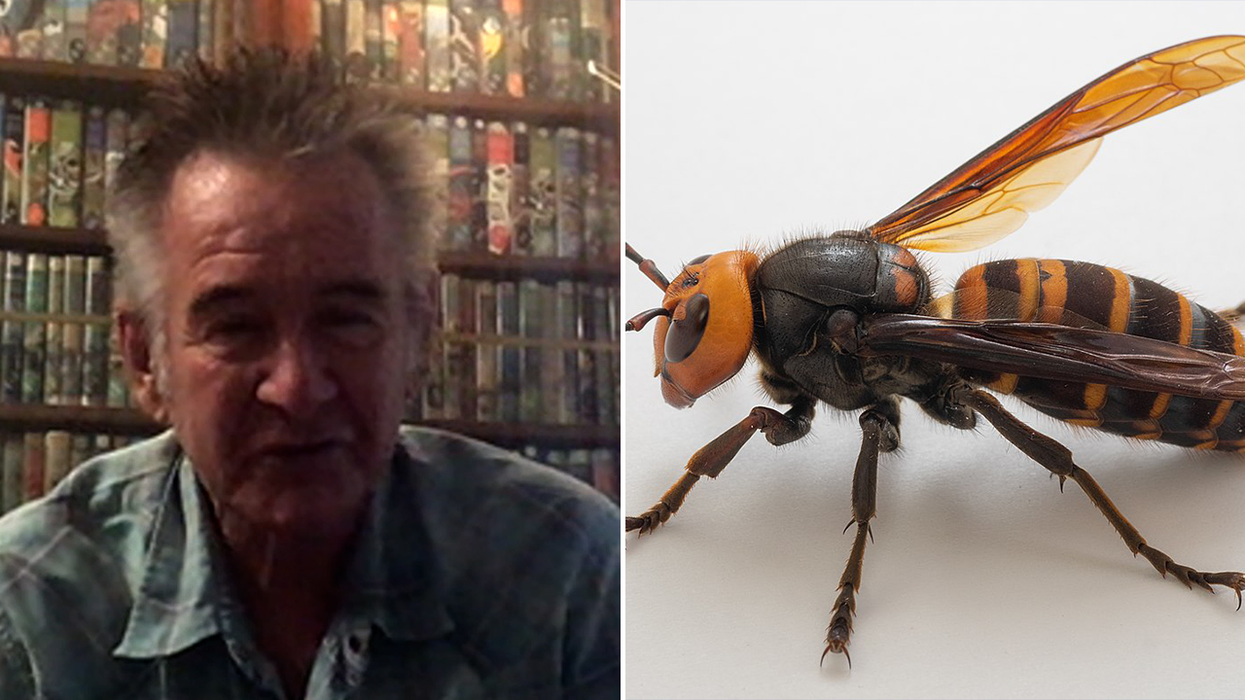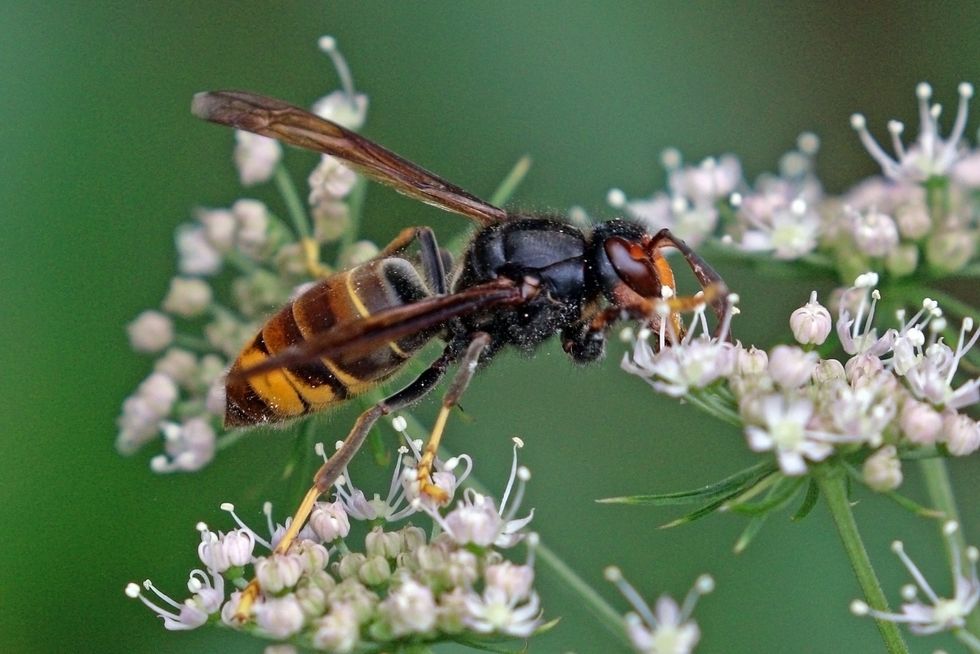Asian hornet invasion: Britons issued dire warning as ‘dangerous’ nests are discovered

Britons have been told to avoid Asian hornet nests
|GB NEWS / WIKIMEDIA COMMONS

A nest 'the size of a football' had to be removed in Guernsey
Don't Miss
Most Read
The threat of Asian hornets to Britons could be at its highest level yet after the discovery of a staggering nest in Guernsey.
It had to be removed with the help of firefighters and a 104 foot crane after it was spotted in a tree top.
The freakish structure is the biggest ever discovered on Guernsey, and its removal does not mark the end of the problem, according to wildlife presenter Nigel Marven.
The Chased by Dinosaurs star is concerned about the threat the insects could pose to bees, saying it could be “the final nail in the coffin”.
WATCH THE INTERVIEW BELOW
“The Asian hornets are invaders. They have a real predilection for feeding on bees”, he said on GB News.
“They wait outside bee hives, catch the bees, chop them to pieces with their jaws, and take them back to feed their babies.
LATEST DEVELOPMENTS
“Bees are already in trouble with pesticides and changes in farming, so this is the last nail in the coffin for them.
“Hopefully we can stop them colonising the country. They’re a real problem.”
The channel island’s Asian Hornet Team were able to track the killer insects back to their nest in a giant oak tree using bait stations.
The group have now found nine nests in the last month, removing five.

Britons are being warned about an Asian hornet invasion
| Wiki Commons images/ Charles J. SharpThe species is threatening to overrun the island , with the group’s strategy coordinator saying it should be dealt with as a “matter of urgency”.
Francis Russell told the Daily Mail: “As autumn approaches, the race is on to remove all the Asian hornet nests across the island.
“If nests remain in place and are not dealt with as a matter of urgency, the production of a new generation of queens will be triggered, with a large secondary nest capable of producing as many as 300-500 queens.
“These would then hibernate on the island over the winter causing further problems for the following year.”
Marven urged Britons to go “nowhere near” their nests as they could represent a significant threat.
“Do not go anywhere near the nest, they really are dangerous”, he said.
“They attack in droves and they’ve got quite a powerful sting. We really don’t want them in the UK feeding on our bees, that would be a real problem to the honey industry.
“They make big nests in trees, about the size of a problem, if you approach they’ll come out and sting you.
“They make amazing nests out of paper from chewed up wood, but we don’t want that in Britain.”







